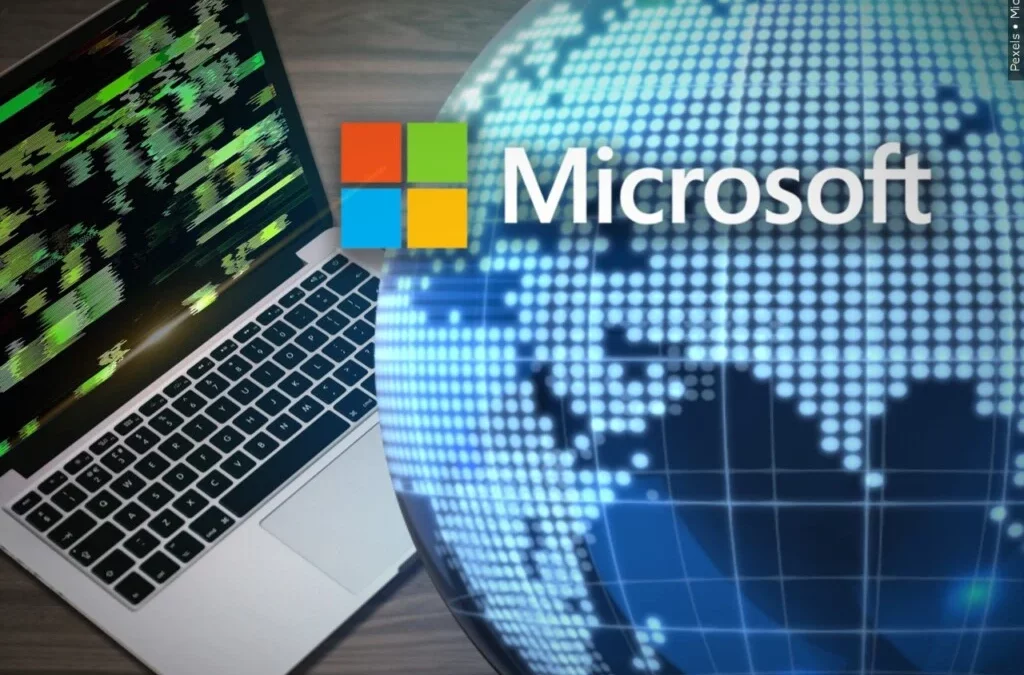A catastrophic technology outage has struck computer systems worldwide, affecting airlines, hospitals, health care providers, 911 call centers, banks, and other organizations.
CrowdStrike, a cybersecurity company founded in 2011, owns over ten different security and IT tools and, according to its website, works with nearly 300 Fortune 500 companies, six of the top ten health care providers, eight of the top ten financial services firms, and eight of the top ten technology firms.
President Biden was briefed on the disruption, and his team has communicated with CrowdStrike, according to a White House news release issued Friday morning. Biden is anticipated to receive “sector-by-sector updates,” while the Department of Homeland Security works to “fully assess and address system outages.”
What exactly is the issue?
Devices running Windows Client and Windows Server that automatically installed a CrowdStrike vulnerability update on Friday morning are “stuck in a restarting state.” This “restarting state” is most often known as the “blue screen of death” (BSOD), which locks people out of their computers.
READ MORE: Elon Musk Blasts Microsoft For Huge Outage That Causes Worldwide Turmoil
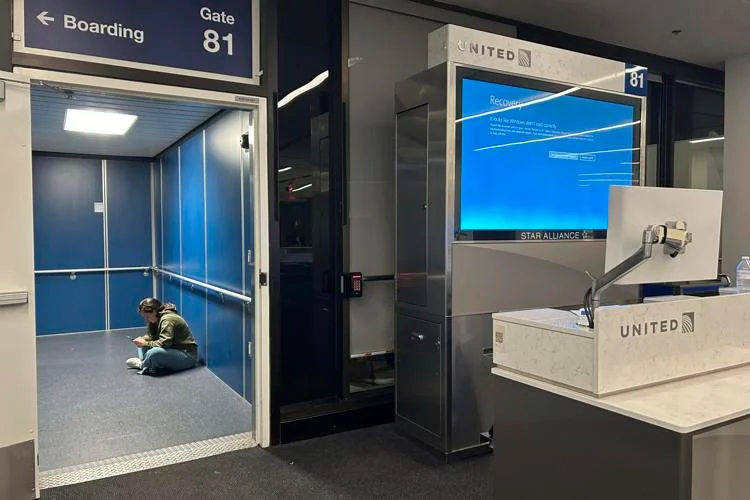
What caused this?
Two problems with Microsoft systems occurred consecutively. On Thursday, certain Microsoft clients in the central United States reported troubles with its cloud service, Azure, prompting some airlines to temporarily pause all aircraft.
On Friday, CrowdStrike released a faulty security update that affected even more Windows users. It is unclear whether Microsoft’s initial Azure issue was related to the crashes caused by the CrowdStrike update.
CrowdStrike’s CEO, George Kurtz, published a statement Friday morning emphasizing that it “is not a security incident or cyberattack” and that “the issue has been identified, isolated, and a fix has been deployed.”
READ MORE: Microsoft Ads Now Offers AI-Powered Asset Recommendations For Video And Display Ads
“We’re deeply sorry for the impact that we’ve caused to customers, travelers, and anyone else affected by this, including our company,” Kurtz said in an interview with NBC’s “Today.”
Why is the CrowdStrike outage taking so long to resolve?
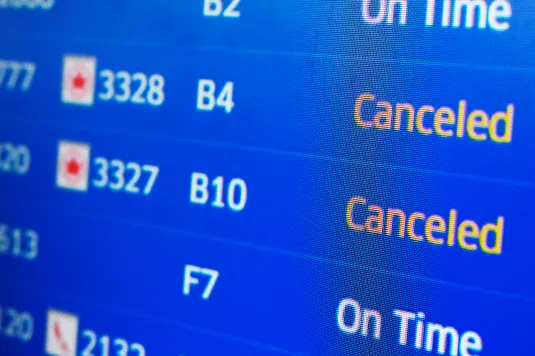
Microsoft stated in a post on X early Friday morning that, while the “underlying cause has been fixed,” the “residual impact is continuing to affect some Microsoft 365 apps and services.”
According to Lukasz Olejnik, an independent cybersecurity consultant, the difficulty is that addressing the issue involves a manual reboot of each impacted device. There is no method to automate the reboot for large-scale enterprises and industries; each afflicted device must be treated individually.
“There is a workaround, but it requires manually tampering with Windows systems files in recovery mode,” Olejnik told the newspaper. “Such practice is in general not advised ordinarily, as mistakes may cause other problems.”
As a result, these organizations must figure out how to deploy a huge number of professionals to go through and update each of their devices individually.
Who has been affected by the CrowdStrike outage?
Several prominent hospitals in the US have cancelled “non-urgent visits” owing to outages.

In a statement on X, Mass General Brigham, a nonprofit that oversees one of Massachusetts’ largest hospital systems, stated that it would devote “every available resource to resolve this issue as quickly as possible.”
James Bore, managing director of a cybersecurity consulting business, told the Associated Press, “There will be deaths as a result of this. It’s unavoidable.
Airports
Airports around the world have reported disruptions with both international and domestic flights. Incheon International Airport, South Korea’s major airport, is experiencing delays from a number of low-cost carriers due to ticketing and other issues.
READ MORE: Microsoft, OpenAI, And Nvidia Are Being Probed Over Monopoly Rules
In Germany, all flights at Berlin-Brandenburg Airport were momentarily suspended, while some departures resumed at 10 a.m. CET. KLM, a Dutch airline, also said that it had been affected and that operations would be paused until further notice. Zurich, Switzerland’s main airport, has stated that planes will not be allowed to arrive this morning.
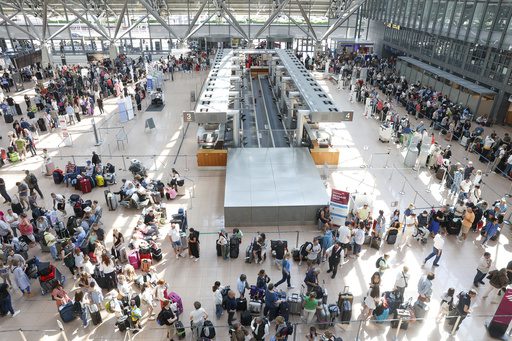
More than 26,000 flights in the United States were delayed or canceled as a result of the disruption. By 12:00 ET, the United Airlines ground halt had been lifted.
911 Call Centers
Several emergency 911 call centers were interrupted across the United States, including Phoenix and the entire state of Alaska, while some cities and states reported improvement throughout the morning.
Courts
The New York Times reported that court operations were momentarily closed today due to the breakdown. The entire Maryland judiciary system declared this morning that it would only be open for “emergency matters.” Some Kansas courts have chosen to use paper filings and manual filing processes while they await a remedy.
READ MORE: Microsoft Makes Copilot Available For All Marketers
The outage affected computers on college campuses, where summer school programs were still in session. The University of Rochester, the University of Alabama, Rutgers University, and the University of Kentucky are among the few universities that have claimed campus computer outages due to CrowdStrike.
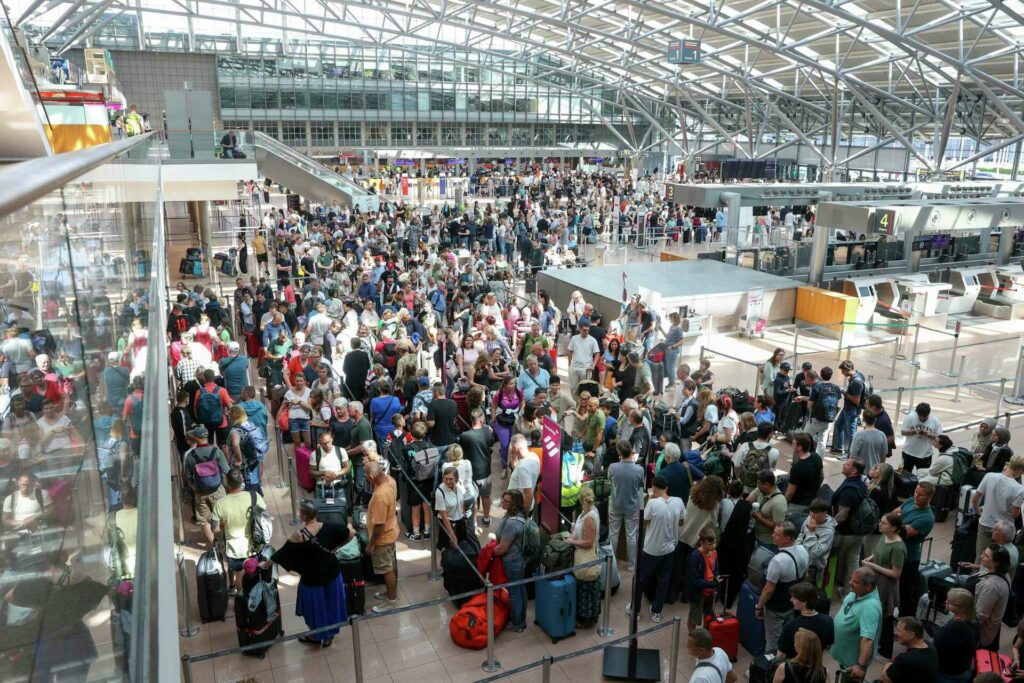
PowerSchool, which is one of the most commonly used information systems for K-12 grading and student enrollment in the United States, also reported being affected by the outage.
TD Bank, the 10th largest in the US, confirmed the outage and is working to restore online banking operations. Bank of America, Visa, JPMorgan Chase, Charles Schwab, and Zelle were all affected.
The London Stock Exchange’s news service went down, and Pakistan’s JS Bank informed customers that it was experiencing technical problems. According to Bloomberg, Deutsche Bank’s research portal was impacted, while S&P Global Market Intelligence reported “service issues across numerous S&P Global Platforms, including Securities Finance products.”
However, forecasting firm Capital Economics told the AP that, while the outage is still ongoing, it does not expect “a major macroeconomic or financial market impact at this stage.”
Public transportation
For the most part, public transportation in big cities has managed to keep buses and trains on time. However, the outage appears to have had an influence on ticketing systems and other IT areas, such as train schedules.
In an interview with CNBC, Secretary of Transportation Pete Buttigieg stated that there was “no indication of an impact to” most systems within the United States Department of Transportation.
Paris Olympics
The Paris Olympics, which begin next week on July 26, announced that its IT systems had been impacted – namely uniform deliveries and accreditations. The organization’s ticketing system and venue preparation are “continuing normally,” according to a news release.
Radiant TV, offering to elevate your entertainment game! Movies, TV series, exclusive interviews, music, and more—download now on various devices, including iPhones, Androids, smart TVs, Apple TV, Fire Stick, and more.


